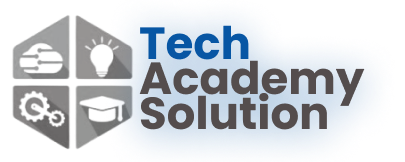Azure Cloud Computing
Let’s help you become a professional Azure Cloud Administrator. You’ll learn all you need to know to master Microsoft Azure fundamentals and advance to cloud administration, covering Azure services, resource management, virtual networks, identity management, storage solutions, and comprehensive cloud governance for enterprise environments.
Next Cohort Starts:
November 1st, 2025
Tuition Fee: N250,000
Class Mode: Online/Virtual Training
Master the cloud and power the next generation of digital solutions.
Our Process

You’ll begin with Azure fundamentals, exploring cloud computing concepts, Azure services, and core architectural components. Starting with basic Azure terminology, you’ll understand cloud benefits, service models, and the Azure global infrastructure essential for modern business operations.

You’ll advance to Azure administration, mastering resource management, virtual machines, networking, and storage solutions. Hands-on labs will develop practical skills in Azure Portal, PowerShell, CLI, and ARM templates while implementing real-world cloud scenarios.

You’ll implement advanced Azure solutions including identity management, monitoring, backup strategies, and governance policies. You’ll prepare for both AZ-900 and AZ-104 certifications while building expertise for professional cloud administration roles.
Modules
Cloud Computing Concepts and Azure Fundamentals
This foundational unit introduces cloud computing principles and Microsoft Azure basics. Students learn about cloud service models (IaaS, PaaS, SaaS), deployment models (public, private, hybrid), and cloud benefits including scalability, reliability, and cost-effectiveness. Topics cover Azure global infrastructure, regions, availability zones, and resource groups. Students explore the Azure Portal interface, Azure mobile app, and basic navigation. Economic benefits of cloud adoption, CapEx vs OpEx models, and cloud economics are thoroughly discussed.

Modules
Core Azure Services and Solutions
Students explore essential Azure services across compute, networking, storage, and databases. This unit covers Azure Virtual Machines, App Service, Container Services, and Azure Functions for compute solutions. Networking topics include Virtual Networks, Load Balancer, VPN Gateway, and Azure DNS. Storage services including Blob Storage, File Storage, and disk types are covered. Database options such as Azure SQL Database, Cosmos DB, and MySQL are introduced. Students gain hands-on experience with service deployment and basic configuration.

Modules
Azure Management and Governance Tools
This unit focuses on Azure management tools and governance solutions. Students learn about Azure Resource Manager, Azure Portal, Azure PowerShell, Azure CLI, and ARM templates. Topics include resource organization using management groups, subscriptions, and resource groups. Governance tools such as Azure Policy, Azure Blueprints, and resource tags are covered. Students explore cost management tools, Azure Advisor recommendations, and service health monitoring. Practical exercises include policy implementation and cost optimization strategies.

Modules
Security, Compliance, and Identity Services
Students master Azure security and identity fundamentals. This unit covers Azure Active Directory, multi-factor authentication, and conditional access policies. Security topics include Azure Security Center, Key Vault, and Azure Information Protection. Compliance frameworks, Azure compliance offerings, and trust center resources are explored. Students learn about shared responsibility models, defense in depth strategies, and zero trust security approaches. Practical scenarios include user management, role-based access control, and security policy implementation.

Modules
Azure Identity and Access Management
This comprehensive unit covers Azure Active Directory administration and identity management. Students learn to manage users, groups, and administrative units in Azure AD. Advanced topics include hybrid identity with Azure AD Connect, self-service password reset, and Azure AD Identity Protection. Multi-factor authentication configuration, conditional access policies, and Privileged Identity Management are covered. Students implement role-based access control (RBAC), custom roles, and access reviews. Integration with on-premises Active Directory and third-party identity providers is emphasized.

Modules
Virtual Machines and Compute Services
Students master Azure virtual machine deployment, configuration, and management. This unit covers VM sizing, disk management, networking configuration, and availability options. Advanced topics include VM scale sets, Azure Batch, and container services (Azure Container Instances, Azure Kubernetes Service). Students learn automation techniques using PowerShell DSC, Custom Script Extensions, and Azure Automation. Backup and disaster recovery strategies for compute resources are implemented. Performance monitoring, troubleshooting, and cost optimization techniques are emphasized.

Modules
Virtual Networks and Connectivity
This essential unit focuses on Azure networking services and connectivity solutions. Students learn to create and configure virtual networks, subnets, and network security groups. Advanced networking topics include VPN gateways, ExpressRoute, virtual network peering, and network routing. Load balancing solutions using Azure Load Balancer, Application Gateway, and Traffic Manager are covered. Students implement hybrid connectivity scenarios, troubleshoot network issues, and optimize network performance. DNS management and network monitoring tools are thoroughly explored.

Modules
Storage Solutions and Data Management
Students explore comprehensive Azure storage solutions and data management strategies. This unit covers storage account types, blob storage tiers, file shares, and disk management. Advanced topics include storage security, access policies, and lifecycle management. Students learn to implement backup solutions using Azure Backup, configure site recovery with Azure Site Recovery, and manage data synchronization with Azure File Sync. Storage monitoring, performance optimization, and cost management strategies are emphasized through practical scenarios.

Modules
Monitoring, Backup, and Disaster Recovery
This critical unit focuses on Azure monitoring solutions and business continuity planning. Students master Azure Monitor, Log Analytics, and Application Insights for comprehensive monitoring strategies. Topics include metric collection, log queries (KQL), and alert configuration. Backup solutions for VMs, databases, and file shares using Azure Backup are implemented. Disaster recovery planning with Azure Site Recovery, backup policies, and recovery procedures are covered. Students develop monitoring dashboards, automate responses, and implement comprehensive backup strategies.

Modules
Azure Resource Management and Automation
The final unit covers advanced resource management and automation techniques. Students master ARM templates, Azure Resource Manager, and infrastructure as code principles. Advanced topics include Azure Automation, runbooks, and configuration management. Students learn to implement governance policies, manage costs with budgets and alerts, and optimize resource utilization. Automation scenarios include VM deployment, patch management, and resource lifecycle management. Integration with DevOps practices and CI/CD pipelines is explored.

Sign in
Sign up
TechAcademy Solution
Typically replies within minutes
Any questions related to Azure Cloud Computing?
WhatsApp Us
🟢 Online | Privacy policy
WhatsApp us
